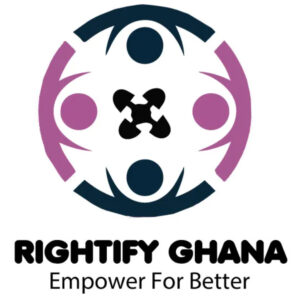Ghana schools adopt anti-homosexuality policy; homophobia flourishes
Colin Stewart is a 45-year journalism veteran living in Southern…
LGBTQ rights advocates seek action against homophobic abuses at Ghana schools

The LGBTQ+ rights advocates of Rightify Ghana are battling against human rights abuses at Ghana schools that may be linked to an anti-homosexuality policy in effect at the nation’s senior high schools (SHS).
The Ghana Education Service (GES) recently updated its Code of Conduct for Ghana schools, declaring that “Any sexual conduct between students of the same sex shall constitute misconduct.”
“This addition appears redundant, given that the existing code of conduct already deems it a misconduct for any student to engage in sexual relations. The new clause seemingly serves little purpose other than emphasising queer sexuality as especially problematic,” Mamba Online stated.
In posts on X, formerly Twitter, Rightify Ghana appealed to the Ghana Education Service to put an end to discrimination, bullying, violence, and harassment by homophobic students and Ghana school officials who may be emboldened by the anti-LGBTQ policy:
Statement Urging GES Action Against Discrimination, Bullying, Violence, and Harassment
In 2023, Rightify Ghana uncovered alarming cases of discrimination and violence against students in SHS within the Ashanti and Eastern regions. Out of approximately 100 documented human rights violation cases, 5 involved students who faced severe discrimination, with 6 even being hospitalised among the 19 survivors reported. Two instances in the Ashanti region prompted petitions to the regional and district GES offices, forcing schools to take action through discussions with parents.

One distressing incident involved 6 male students brutally attacked on campus by about 30 masked peers who accused them of being gay due to their perceived effeminate qualities. The GES Code of Conduct, as it stands, may inadvertently embolden homophobic students and school authorities to harm those perceived to be LGBTQ, as demonstrated in the aforementioned case at a senior high school in the Ashanti region.
We have in possession a statement from a legal firm which represented some affected students at an SHS in the Eastern region. It shows how far some parents had to go to ensure that their children do not lose their right to educate.
In another case which Rightify Ghana followed in the Ashanti region, our investigations uncovered corruption among staff of an SHS, as they extorted monies from a student and his mother after they dismissed him and prevented him from registering for WASSCE [the West African Senior School Certificate Examination]. We found evidence of MoMo [digital] payments from the student to teachers, who promised to get him back into the school.
As a human rights organisation, it took our intervention to get school authorities to reverse their decision which they admitted was not official and had done no investigation to prove the homosexuality claim against the student. The evidence of unfair treatment is overwhelming.
This situation demands immediate attention from the Ghana Education Service to address discrimination, bullying, violence, and harassment against vulnerable students. The GES should take a stand against such incidents, ensuring the punishment of students involved in the harassment or violent attacks on effeminate male students and those perceived to be LGBTQ.
Last year’s documented cases revealed that attacks were based on suspicion rather than evidence of inappropriate behavior. Studies emphasize the adverse effects of such discrimination, linking it to increased risks of bullying, chronic sadness, suicidal thoughts, and poor academic performance among students perceived to engage in same-sex sexual conduct.
Addressing these issues within the education system is crucial for creating a safe and supportive environment where all students, no matter their sexual orientation or gender identity, can thrive.




